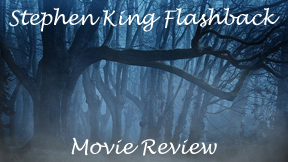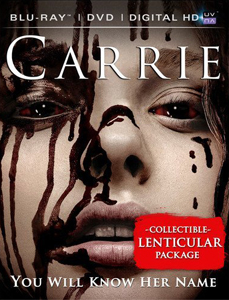Love or hate the slew of horror remakes of the early part of this century, but most have something slightly new to say. Or they change the story a bit to keep us on our toes. My favorite is “Halloween” (2007) because it expands the backstory then surprises us with twists on the familiar material.
Generation gap
“Carrie” (2013) is not a shot-for-shot remake like “Psycho” (1998), but it’s closer to that than to “Halloween ’07.” For some reason, Roberto Aguirre-Sacasa (“Chilling Adventures of Sabrina”) has a co-credit. But aside from moving some scenes around and slightly altering characterizations, this is Lawrence D. Cohen’s 1976 screenplay as directed Kimberly Peirce, stepping in for Robert De Palma.
Because of its general professionalism and strong cast, I would’ve liked more of the “Halloween ’07” approach. Take the familiar “Carrie” structure but tweak it to comment on life in 2013. Or make the bullies way more aggressive. Or make Carrie’s powers way more vicious. Do something different.

“Carrie” (2013)
Director: Kimberly Peirce
Writers: Lawrence D. Cohen, Roberto Aguirre-Sacasa (screenplay); Stephen King (novel)
Stars: Chloë Grace Moretz, Julianne Moore, Gabriella Wilde
Granted, subtle differences in acting, casting and emphasis make “Carrie ’13” more universal. Chloe Grace Moretz’s Carrie is talkative at home, where she stands up for herself. She counters her mother’s (Julianne Moore) Bible verses with contradictory verses in one of the few bits of new material.
Carrie has control of her powers throughout this film – she even saves herself from infanticide right out of her mother’s womb. There’s no doubt she is going to overthrow her mother.
As Carrie makes steady inroads at home, she’s less successful at school, where she retreats into her shell. The movie also goes into a shell in the high school scenes, which can’t compete with Moretz and Moore doing their dance.
Back to school
As Tommy, charming Ansel Elgort previews his “Fault in Our Stars” vibe to convince Carrie she has value despite being shy. And reliable Judy Greer is the audience stand-in as gym teacher Miss Desjardin, who fawns over Carrie like she’s a scared puppy.
Most other versions of “Carrie” – notably Stephen King’s novel – make the viewer complicit with Carrie’s enemies. We wonder if we’d participate in the taunts if we were in these students’ shoes because Carrie is so pathetic.
Moretz is too adorable for that. We think “What kind of monster makes fun of this sweet girl who wouldn’t hurt a fly?”

Carrie’s “makeover” is as easy as Rachael Leigh Cook’s removal of her glasses in “She’s All That.” Carrie combs her hair and puts on a dress. Yes, Tommy is a nice guy, but as far as favors go, taking Carrie to the prom ain’t exactly torture.
Too good for this stuff
This film suffers from the same issue as “The Rage: Carrie 2.” When the prank happens, we feel Rachel – and now Carrie – should be above it all. She should leave the scene, knowing she’s better than everybody.
The special effects in the final-act destruction are technically better than they’ve ever been, and Moretz looks the part of an iconic horror villain. She spices up her Hit-Girl expression with a smidgen of pain. Yet a viewer doesn’t feel her emotions like we do in the 1976 and 2002 “Carries.”
More than the others, “Carrie ’13” plays as a universal examination of how teen girls are pulled in different directions. The simple biological fact of becoming a woman is the subject of scorn from classmates and a parent — notably females in both cases. (Male students laugh at her, but only if their girlfriends laugh first.)
This movie takes women’s perspective, but not a woman’s perspective. Because Moretz is a mainstream, beautiful actress, she’s the least individualistic of the Carries. Meanwhile, Gabriella Wilde and Portia Doubleday are the flattest versions of Sue and Chris.
So a new generation has their “Carrie.” If it defines the generation, it doesn’t say much for its originality. But to be fair, “Carrie ’13” was likely made because it’s bankable. Target audience aside, this movie industry generation is less daring than ever.
On Fridays, RFMC reviews a Stephen King book, adaptation or related work. Click here to visit our Stephen King Zone.

